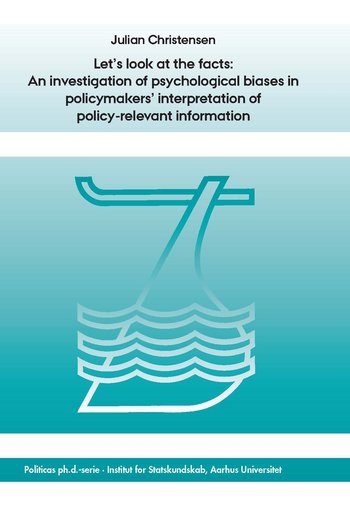Julian Christensen
Let’s look at the facts: An investigation of psychological biases in policymakers’ interpretation of policy-relevant information

This dissertation asks whether psychological biases affect policymakers’ interpretation of policy-relevant information and whether contextual factors moderate the impact of psychological biases on policymakers’ interpretations. A comprehensive experimental investigation, involving surveys of several thousand elected policymakers, shows that policymakers are indeed affected by psychological biases when interpreting policy-relevant information. Policymakers are biased by prior attitudes and beliefs and by factors related to the presentation of information. Furthermore, contextual factors do matter, but in ways that were not expected. Thus, contrary to theoretical expectations, the impact of political attitudes on policymakers’ interpretations is stronger when the policymakers are presented with larger amounts of evidence in support of a given conclusion and when they are asked to justify their interpretation of the information. This behavior differs from the behavior of representative samples of ordinary (non-policymaker) citizens who participated in identical experiments. Results suggest that the policymaker role affects policymakers’ behavior, and therefore, the dissertation calls for scholars with an interest in policymakers’ behavior (and the behavior of political elites more broadly) to take roles more seriously than they have done so far. The dissertation’s results question core assumptions behind the idea that policy improvements will follow when policymakers get access to policy-relevant information. When policymakers are biased in their interpretation of information, they are also likely to be biased in their use of the information.
![]() Ophavsretten tilhører Politica. Materialet må ikke bruges eller distribueres i kommercielt øjemed.
Ophavsretten tilhører Politica. Materialet må ikke bruges eller distribueres i kommercielt øjemed.